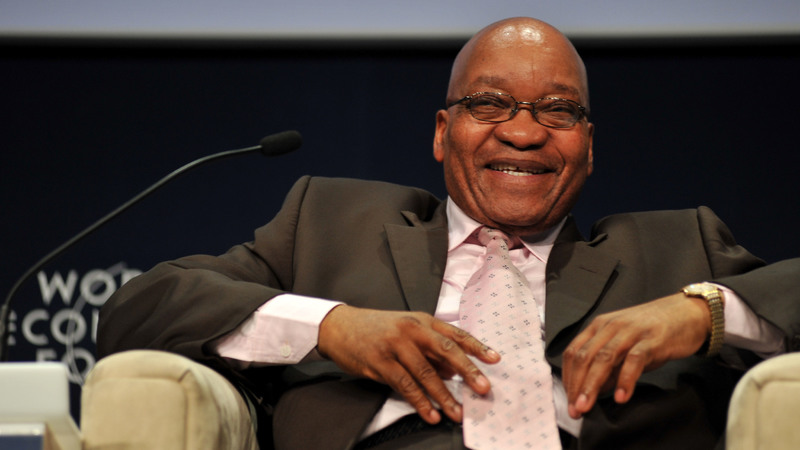‘Both ANC and opposition in crisis’
01 June 2017 | Story Yusuf Omar. Photo World Economic Forum.
In the aftermath of the ANC National Executive Committee (NEC)’s fierce debate over the last weekend of May about whether to remove Jacob Zuma as the ruling party’s president, UCT political scientist Dr Zwelethu Jolobe argues that such a move was always likely to lose out.
First things first: while many media outlets have described Joel Netshitendze’s proposal that Zuma consider stepping down as a “motion of no confidence”, Jolobe points out that describing it in this way is misleading.
“My understanding is that a request was tabled that the president should resign in light of events since this was tabled last December. Since the NEC does not vote as a matter of procedure and all decisions are reached by consensus, there was bound not be a consensus on this matter as the argument that he should finish his term in the party – why push him out now when he is leaving anyway – far outweigh those arguments that he should go, in that they cannot control the consequences of the subsequent power vacuum.
“The request, therefore, is more about sparring as opposed to a genuine attempt at ending his term prematurely,” Jolobe argues.
Current ANC deputy president Cyril Ramaphosa and Nkosazana Dlamini-Zuma, fresh from a stint as chairperson of the African Union, are the only two candidates who’ve (tacitly, at least) declared their candidacy for the presidency at the ANC’s elective conference this December.
The power vacuum that Jolobe describes is the frantic power battle that would be sparked by Zuma leaving his post before December.
“There is no front runner and obvious successor,” he says. “This will only come about after the December conference. Him vacating prematurely from the party before the elective conference would hurt the party irreparably.”
Recently, a group of academics published Betrayal of the Promise: How South Africa is being stolen, a paper that details how strategically important bastions of the South African state have been systematically “captured” by the “Zuma-centred power elite”.
UCT’s Professor Haroon Bhorat is one of the six scholars who wrote the “explosive” publication (Read the article...).
But how badly would the ANC need to tarnish its image for opposition political parties to have genuine hopes of usurping the incumbents in the 2019 general elections?
“Any realistic chance for the opposition to assume power can only primarily come from the opposition and is not dependent on the ANC,” says Jolobe. “The ANC has muddled through for so many years and no opposition party has created meaningful capital out of this. They have been unable to change the minds of voters.”
In as much as the ANC is experiencing an uncertain transitional period, then, the opposition is also in a period of crisis and they have to utilise the courts as a weapon to compensate for their weakness, he adds.
While state capture has hogged recent headlines, are there other equally important political problems that are missing out on necessary limelight?
Jolobe’s response can be described as both cagey and sage: “The importance of a public policy issue is always relative to one’s social/economic/political position.”
 This work is licensed under a Creative Commons Attribution-NoDerivatives 4.0 International License.
This work is licensed under a Creative Commons Attribution-NoDerivatives 4.0 International License.
Please view the republishing articles page for more information.










